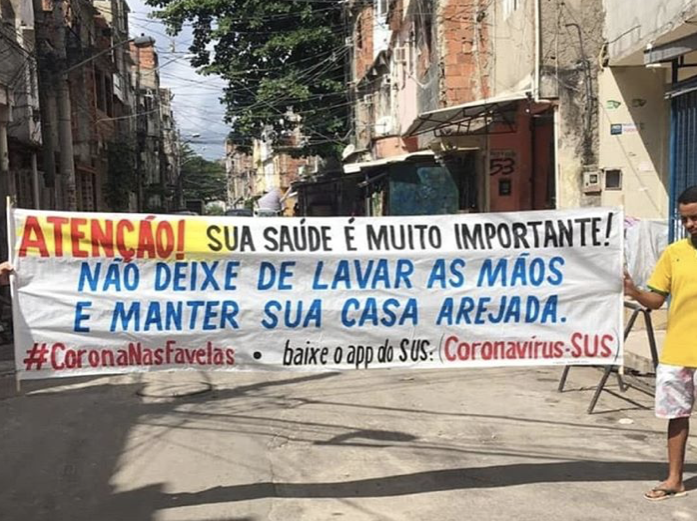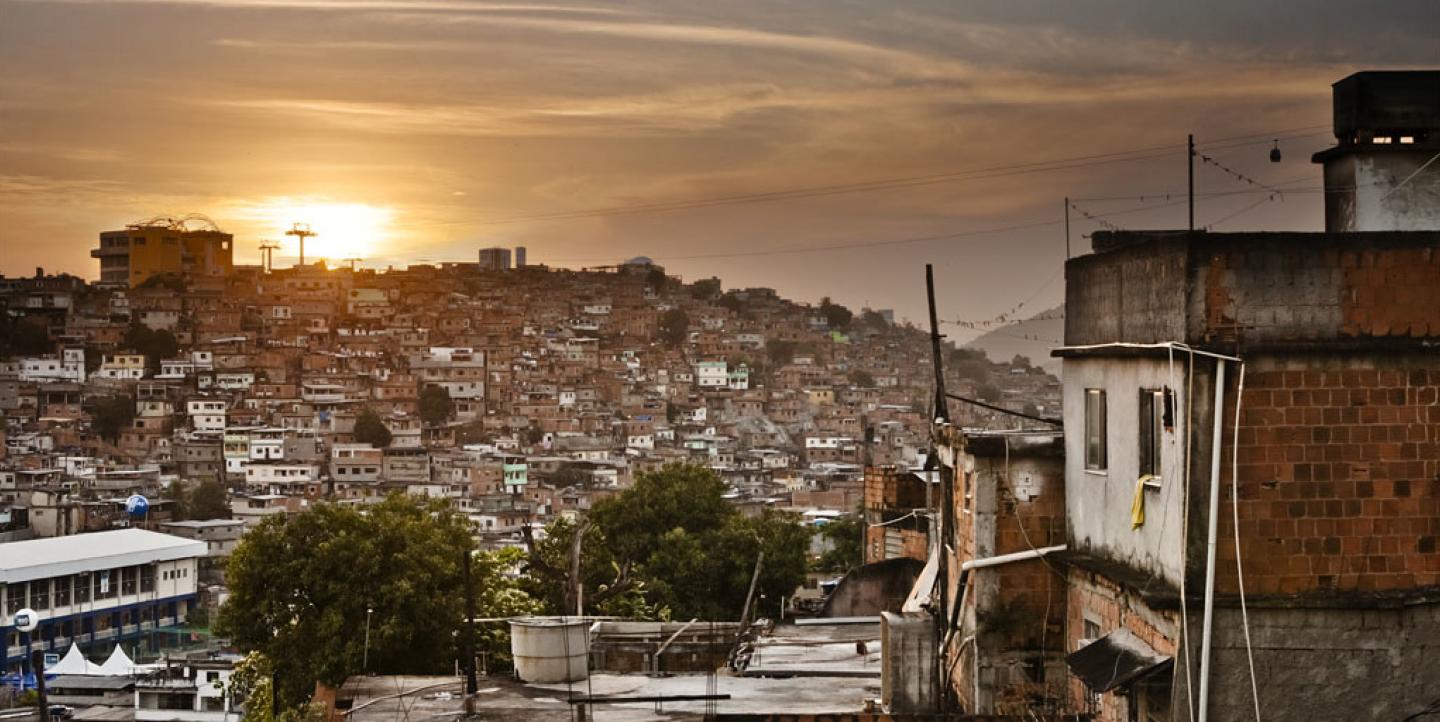As soon as the novel coronavirus pandemic emerged in Brazil, grassroots organizers decided on creative strategies to raise awareness in the favelas.
"People were still out and about, not knowing how to quarantine since they need to work in order to eat," said Gizele Martins, journalist and resident of the Maré favelas, in an episode about favelas and the new coronavirus for the podcast "Na rede com o Cinco." She belongs to a group that developed prevention actions even before the first case of COVID-19 was confirmed in a Rio de Janeiro slum.
[Read more: The role of solutions journalism in reporting on COVID-19]
Brazil has 13.6 million people living in favelas, according to research by Data Favela, and almost 1.4 million are in Rio de Janeiro alone. Informal workers, who comprise a large population of the favelas, face the challenge of complying with the stay-at-home order of the Brazilian Ministry of Health, as cases emerge in these vulnerable areas.
According to a report by Rio de Janeiro's health department, on April 8, six deaths were confirmed in the favelas as a result of COVID-19. To monitor suspected and recovered cases, the NGO Voz das Comunidades is tracking coronavirus cases in the favelas of Rio.
Initiatives are spreading throughout Rio de Janeiro and beyond. Concerned with the local coverage, grassroots media organizations such as Maré 0800, Maré Vive and A Maré Vê worked with health professionals to produce audio announcements to broadcast from cars throughout the streets.
[Read more: How can journalists protect themselves during the COVID-19 pandemic?]
Suzane Santos, who is part of Frente de Mobilização in Maré, explained the strategy behind the public announcements: “We understand that not all residents have access to the internet, so awareness via online media is limited and doesn't reach everyone. In person, we manage to convey more care and compassion.” The local campaign also features posters and more than 60 banners in busy spaces, such as soccer fields and bars, reinforcing hygiene and social distancing guidelines.
In other favelas such as Complexo do Alemão, Cidade de Deus and Rocinha, there are also online and offline initiatives, covering the Ministry of Health's guidelines such as frequent hand washing and avoiding spaces with a large number of people.

The grassroots organizations across Rio de Janeiro have also created the hashtags #COVID19NasFavelas (COVID-19 in the favelas) and #CoronaNasPeriferias (COVID-19 in the outskirts) on Twitter to share experiences, opinions and news from these areas, as well as to spark discussions about the urgent need for prevention, food, water and health products for favela residents.
The media outlets based in the favelas are working full force to produce content and stories on prevention and impact of COVID-19 in the favelas. These include breaking news, informational articles, photos and videos, produced by residents who are skilled in journalism and attuned to the local experience.
An example is the news agency Favela em Pauta, which has a dedicated page on its website for news about the novel coronavirus. Jornal Voz das Comunidades has also featured the voices of residents on the pandemic, as its non-governmental organization leads an intense mobilization to collect donations of food and personal hygiene products.
Communication initiatives in the favela do not happen alone. A network of about 70 grassroots communicators across Brazil are working together with, and on behalf of, favelas. Named #CoronaNasPeriferias, the network signed a letter laying out how the group is coordinating efforts to inform favela residents.
One of the network's members is Renato Silva, a journalist from Portal Favela em Pauta. He said he believes that favela initiatives practice the necessary empathy and quick response, despite the difficulties.
"It is important that the coalition unites information and communication initiatives that include favelas, outskirts regions, ghettos, quilombos and hinterlands," said Silva. “It strengthens our individual agency, creates the feeling that we are not alone — even in isolation — and it helps us to fight fake news.”
While grassroots organizations do their part with the few resources they have, Brazil's Ministry of Health is still studying ways to act effectively in these areas, such as establishing a specific program for addressing coronavirus concerns in favelas, at the request of the Federal Attorney for Citizen Rights.
Main image CC-licensed via Flickr by Dhani Borges

